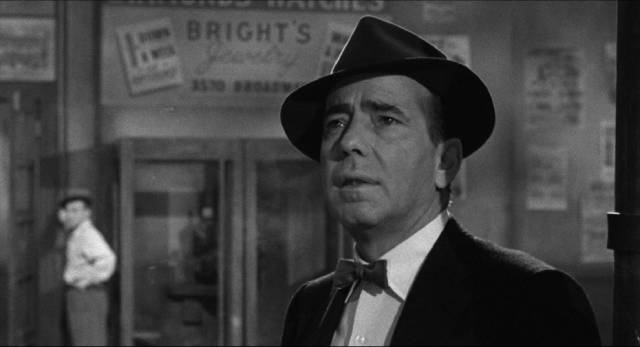
A couple of Christmas movies showcase Barbara Stanwyck’s range in comedy and drama, while Indicator’s fifth Columbia Noir set focuses on Humphrey Bogart’s screen persona in several routine movies and one classic.
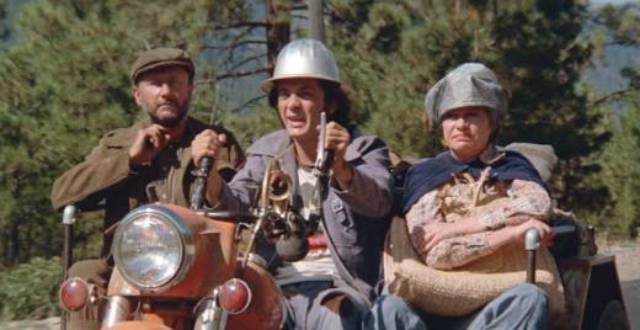
A relatively new label, Canadian International Pictures, has resurrected Gerald Potterton’s light and charming character-based comedy The Rainbow Boys (1973) in a fine Blu-ray edition with substantial extras. Another CIP release showcases Potterton’s National Film Board short The Railrodder (1965), a travelogue starring Buster Keaton towards the end of his life, along with John Spotton’s documentary about the making of the short, Buster Keaton Rides Again (1965), and another NFB travelogue, Eugene Boyko’s Helicopter Canada (1966), made to mark the country’s centennial.
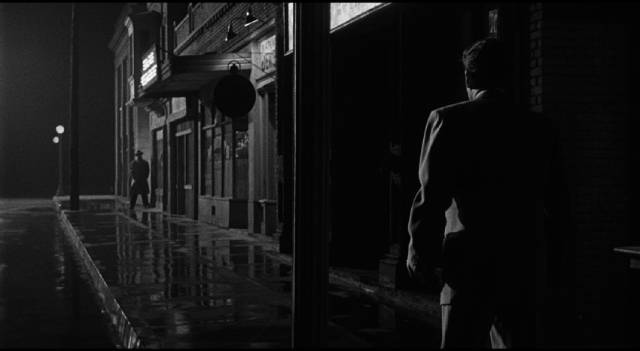
After five box sets devoted to film noir B-movies from Columbia Studios, Indicator have embarked on a follow-up covering Universal Studios crime films from the same mid-’40s to late-’50s period. The inaugural set of six titles covers a range of styles, from the classic noir of Michael Gordon’s The Web (1947), Norman Foster’s Kiss the Blood Off My Hands (1948) and Jerry Hopper’s Naked Alibi (1954) to the docu-noir of Joseph M. Newman’s Abandoned (1949) and the shot-in-Italy neorealist melodrama of Robert Siodmak’s Deported (1950). With a host of contextual and critical extras, Universal Noir #1 inaugurates another great series of releases from Indicator.
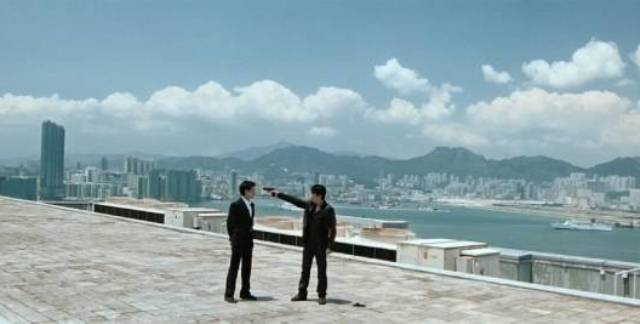
Soon after Hong Kong was handed back to China by Britain, filmmakers Andrew Lau Wai-keung and Alan Mak embarked on an ambitious project to revitalize a film industry in disarray. The result was the Infernal Affairs trilogy, which has its roots in the HK action movies of the 1980s, using familiar narrative tropes as a springboard for a complex meditation on identity amidst new political and economic uncertainties. Criterion’s three-disk Blu-ray set showcases the trilogy with an array of new and archival extras.
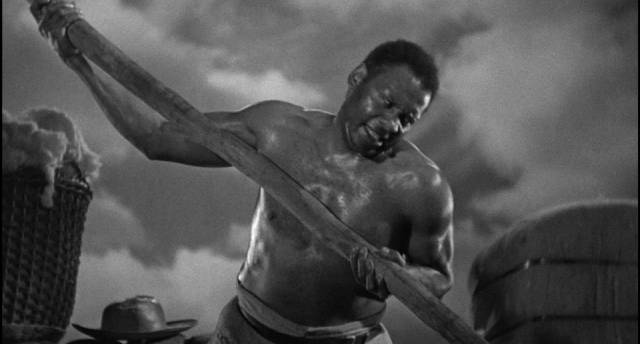
Although now he’s best-known for his four witty Gothic horror movies – Frankenstein, The Old Dark House, The Invisible Man and Bride of Frankenstein – Show Boat (1936) is arguably James Whale’s crowning achievement as a filmmaker. One of the decade’s great musicals, it is also one of the most complex and nuanced treatments of race and its impact on American culture produced at the height of Hollywood’s studio era. Criterion’s Blu-ray does full justice to the film’s intrinsic qualities and historical importance.
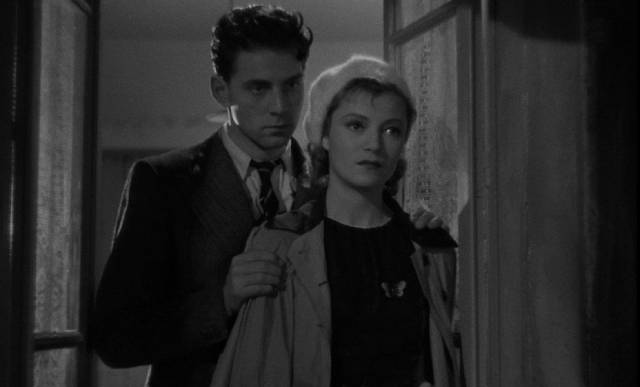
Doomed romance is offset by a vibrant sense of community in Marcel Carné’s Hôtel du Nord (1938), one of the filmmaker’s remarkable string of poetic realist masterpieces from the late 1930s to the mid-’40s. The film’s rich atmosphere comes to life in the 2K restoration used by Criterion for their new Blu-ray release.
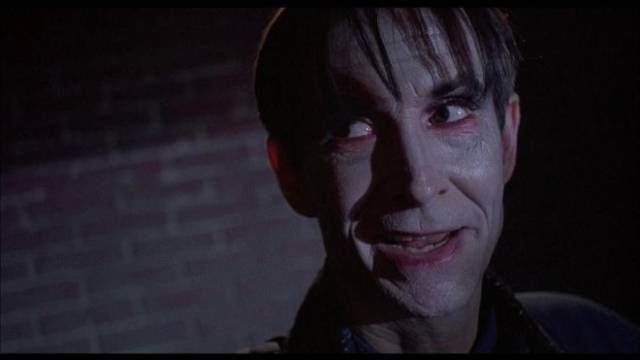
Two new Arrow releases – and one older one – plunge into sexual confusion, insecurity, violence and romantic longing: Robert Day’s TV movie The Initiation of Sarah (1977) riffs on themes from Stephen King’s Carrie; Gérard Kikoïne’s Edge of Sanity (1989) gives Anthony Perkins a chance to unleash his inner demons in a career-topping dual performance as Dr. Jekyll and Mr. Hyde; and Kathleen Turner is fearless as a businesswoman who moonlights as a prostitute inspires romantic passion in one man and murderous passion in another, the latter another ferocious, jittery performance from Anthony Perkins.
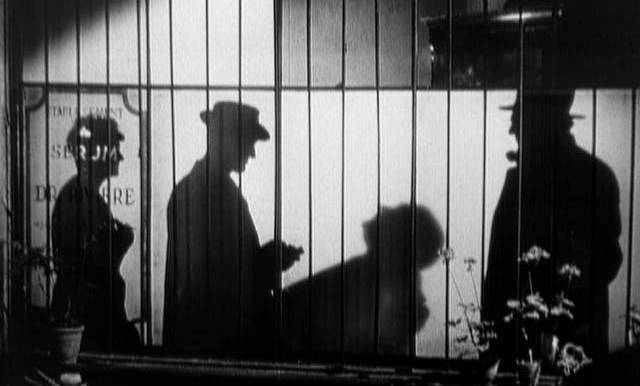
A couple of things seen long ago have resurfaced on disk, tugging at vague memories: Network’s 11-disk set of all 52 episodes of the BBC’s classic series based on Georges Simenon’s novels about Superintendent Maigret (1960-63), and Brian Damude’s scrappy Canadian thriller Sudden Fury (1975) from Vinegar Syndrome reveal just how flawed my memory is.
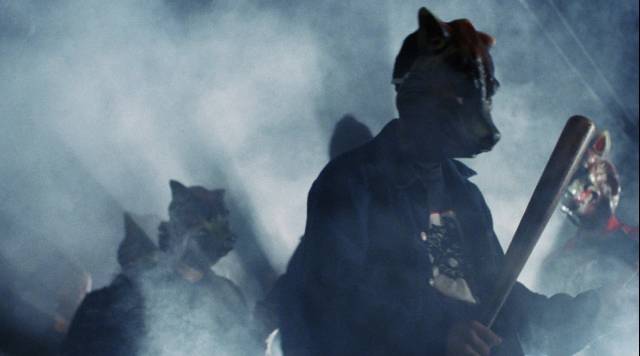
Spanish zombies, rural American zombies, a Korean serial killer, monsters and illicit mindbending drugs, a blood-fuelled car, small-town fascism, an eccentric family in retreat from the modern world, and a man with a truffle-hunting pig – there’s no pattern here in my recent movie-watching other than a restless search for the original and the entertaining.